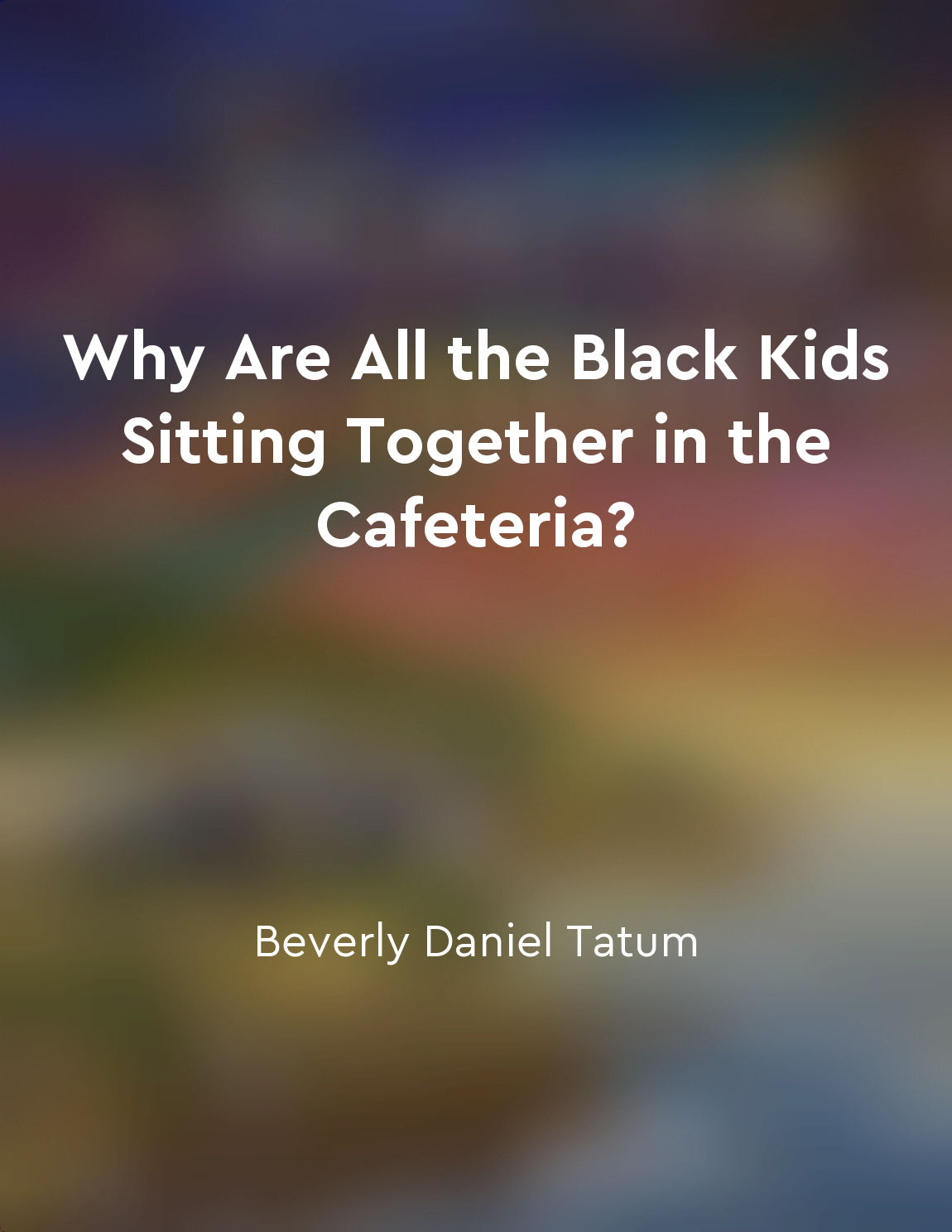Address social justice issues from "summary" of Culturally Responsive Teaching by Geneva Gay
Addressing social justice issues involves recognizing and challenging the systemic barriers and inequalities that exist in our society. It requires educators to examine power dynamics, privilege, and oppression that impact different groups of people. By addressing social justice issues in the educational setting, teachers can create a more inclusive and equitable learning environment for all students. One way to address social justice issues is by incorporating diverse perspectives and voices into the curriculum. This means including materials and resources that reflect the experiences of various cultural, racial, and ethnic groups. By doing so, teachers can help students develop a more nuanced understanding of the world and break down stereotypes and prejudices. Another important aspect of addressing social justice issues is fostering critical thinking skills in students. Educators can encourage students to question the status quo, challenge dominant narratives, and analyze the root causes of social injustices. By promoting critical thinking, teachers can empower students to become agents of change in their communities. Furthermore, addressing social justice issues involves creating a safe and supportive classroom environment where all students feel valued and respected. Educators can implement restorative practices, conflict resolution strategies, and community-building activities to foster a sense of belonging and promote positive relationships among students.- Addressing social justice issues in education is essential for promoting equity, diversity, and social change. By incorporating diverse perspectives, fostering critical thinking skills, and creating inclusive classroom environments, educators can help students develop a deeper understanding of social justice issues and become advocates for a more just and equitable society.
Similar Posts

Cultural identity influences worldview
The way we view the world is shaped by who we are, by the cultures in which we are raised, by the stories we are told. Our cult...
Language proficiency opens doors to opportunity
Language proficiency is a powerful tool that can open doors to a world of opportunities. When individuals possess a high level ...

Listening to diverse perspectives is key to growth
In a world filled with diverse perspectives, it is essential to actively listen to others in order to grow. By engaging with di...
Supporting personalized learning experiences
Personalized learning experiences are essential for students to truly engage with their education. When students have the oppor...
Liberal education is worth defending
A liberal education is not merely about acquiring a specific set of skills or knowledge. It is about learning how to think crit...
Incorporate critical thinking into writing exercises
Critical thinking is a crucial skill that students need to develop in order to engage with complex texts and ideas. One way to ...
Many girls face discrimination and violence in their pursuit of education
In some parts of the world, girls face discrimination and violence simply because they want to go to school. Despite their dete...
Solidarity is key to change
Solidarity is not just a nice idea or a feel-good slogan. It is a powerful force that has the potential to bring about real and...
Foster a sense of belonging
Geneva Gay emphasizes the importance of creating an inclusive environment where all students feel like they belong. This involv...
Incorporating interactive teaching methods enhances retention
The use of interactive teaching methods is crucial for improving students' retention of information. When students are actively...

